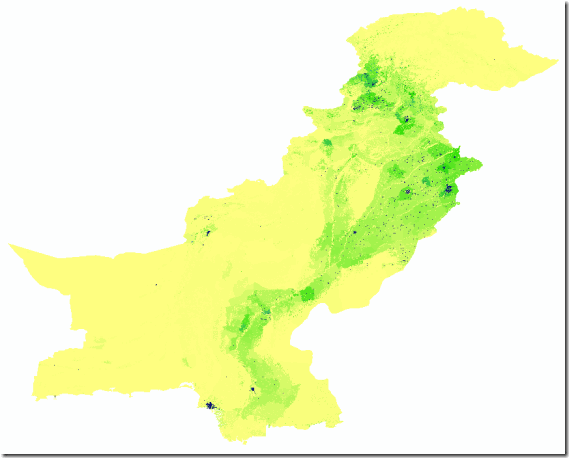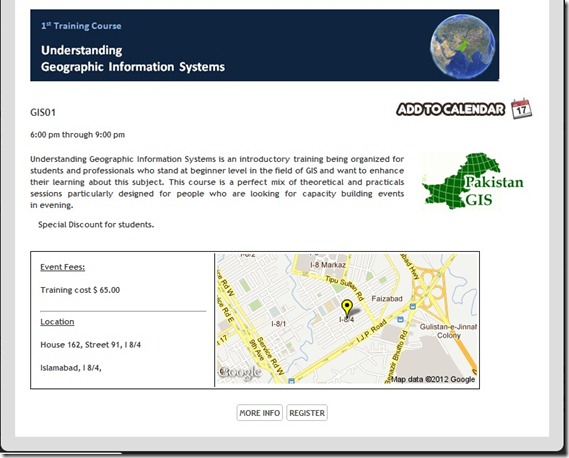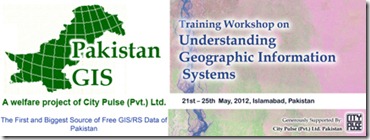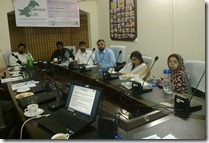Almost every project in rural development, disaster management and community awareness calls for field surveys for the collection of primary data. In low income country like Pakistan where capacity and administrative problems with the collection of data are common, surveys are often the only way to collect reliable data. Paper based data collection has been the standard method for decades but errors are frequent, storage costs are prohibitive, and the costs of double data entry are high. Recent advancement in communication technology has introduced the electronic methods of data collection in order to merge the process of data collection and data entry. Handheld devices such as personal digital assistants and smart phones are increasingly being used instead of paper and pencil methods of data collection.
In 2008 Pakistan was the world’s third fastest growing telecommunications market. Pakistan’s telecom infrastructure is improving dramatically with foreign and domestic investments into fixed-line and mobile networks; fiber systems are being constructed throughout the country to aid in network growth. Approximately 90 percent of Pakistanis live within areas that have cell phone coverage and more than half of all Pakistanis have access to a cell phone. With 118 million mobile subscribers in March 2012, Pakistan has the highest mobile penetration rate in the South Asian region (Wikipedia 2012). This gives us a very positive opportunity to use mobile based data collection mechanisms in our regular data collection and research activities to reduce our cost and improve accuracy and efficiency.
 The concept of electronic data collection has been applied successfully in many developing countries (see Map) in the field of health, agriculture, socio-economic studies, livelihoods & economic development, microfinance, market analysis and customer satisfaction studies. Recently this data collection mechanism has been adopted in Pakistan by some national and international organizations to collect data from remote areas at a reasonably large scale.
The concept of electronic data collection has been applied successfully in many developing countries (see Map) in the field of health, agriculture, socio-economic studies, livelihoods & economic development, microfinance, market analysis and customer satisfaction studies. Recently this data collection mechanism has been adopted in Pakistan by some national and international organizations to collect data from remote areas at a reasonably large scale.
Open Data Kit (ODK) is a suite of tools that allows data collection using Android mobile devices and data submission to an online server, even without an Internet connection or mobile carrier service at the time of data collection. One may streamline the data collection process with ODK Collect by replacing traditional paper forms with electronic forms that allow text, numeric data, GPS, photo, video, barcodes, and audio uploads to an online server. You can host your data online using Google’s powerful hosting platform, AppEngine, manage your data using ODK Aggregate and visualize your data as a map using Google Fusion Tables and Google Earth.
Created by developers at the University of Washington’s Computer Science and Engineering department and members of Change, Open Data Kit is an open-source project available to all. It consists of three main components Build, Collect and aggregate as shown below:

As per my knowledge, in Pakistan, Mobile data collection using Andriod based smart phones has been used partially in the following projects (as of May 2014):
- Multi-sector Initial Rapid Assessment for Pakistan (MIRA) implemented by OCHA and NDMA
- Collection of primary data about ‘elements at risk’ in flood plain areas of Indus River implemented by City Pulse (Pvt.) Ltd. (Mar 2012)
- Real time data analysis of Participants’ Feedback in training sessions (Jan 2014)
- Labour Force Survey in Gilgit Baltistan implemented by AKFP and AKRSP
- A pilot project on monitoring of health facilities using smart phones implemented by LUMS
- PakistanGIS team has been capacitating a few groups of university researchers in Mobile data collection systems and Smart phone based primary data collection for improving efficiency and accuracy in data collection for their research. (Aug 2012)
- IRG has used Mobile data collection for Electricity Consumers’ Census in KPK for PESCO. Mobile data collection and Management solution has been provided by City Pulse (Pvt.) Ltd. (April 2014)
Special Thanks to Mr. Qadeer for write up
Like this:
Like Loading...









































